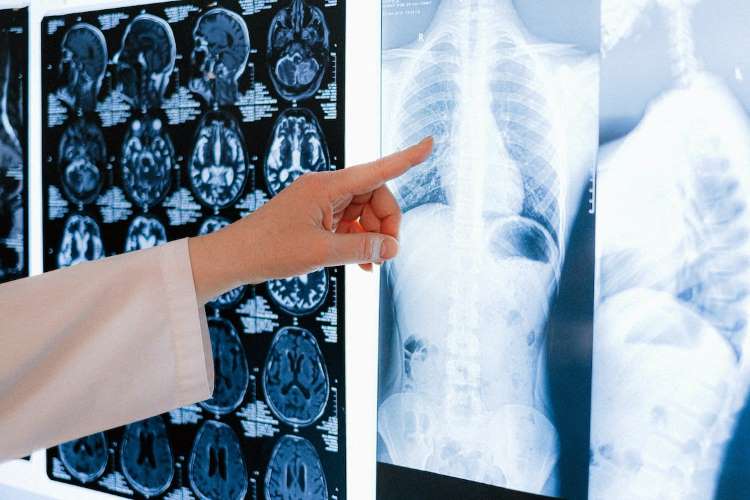
Breathing, an involuntary act most take for granted, is a critical function of life. Every day, our lungs process about 10,000 litres of air, extracting the necessary 420 litres of oxygen that sustain us. However, this life-sustaining process is increasingly under threat from factors like air pollution and harmful lifestyle habits. The urgency to focus on lung health has never been more apparent, especially in light of alarming statistics from global health bodies and recent health crises like the COVID-19 pandemic.
The World Health Organisation reported in 2012 that 7 million people die annually due to exposure to air pollution. This staggering number underscores the global impact of environmental factors on respiratory health. In India, respiratory diseases like tuberculosis, lung cancer, and chronic obstructive pulmonary disease (COPD) are leading causes of mortality. Lung cancer, in particular, is a top cause of death not only in India, but globally.
READ | Ticking time bomb: Can our cities survive climate change?
The Indian context: A struggle for breath
India’s journey in improving life expectancy has been remarkable, from 32 years at independence in 1951 to 72 years in 2023. However, this progress pales in comparison with regions like Japan, Switzerland, and Sweden where life expectancies exceed 80 years. One of the critical factors influencing this disparity is the quality of air. Indian cities, particularly Delhi, are battling severe air pollution. Studies indicate a reduction in life expectancy by 5.3 years on average due to air pollution, with more pronounced effects in heavily polluted areas.
Delhi’s air quality crisis offers a stark example of how environmental factors can drastically affect lung health. The city, often ranked as one of the world’s most polluted, faces a myriad of challenges. During certain times of the year, such as post-Diwali celebrations, the air quality deteriorates significantly, leading to visibility issues and health hazards. This poor air quality not only exacerbates existing respiratory conditions but also contributes to the development of new health issues.
Air pollution and lung health
The particulate matter in air pollution, especially PM2.5, poses a significant threat to respiratory health. These fine particles can penetrate deep into the lung tissue and even enter the bloodstream, affecting other organs. The impact is not limited to physical health; studies from places like North Carolina have shown that high levels of PM2.5 can impair cognitive functions in children, affecting their ability to read and perform mathematical calculations.
COPD, a preventable respiratory disease largely caused by smoking, is now the third leading cause of death globally. In India, 50% of COPD cases are attributed to indoor and outdoor air pollution, a significant shift from the earlier association with smoking alone. Asthma prevalence is also increasing, with environmental factors playing a significant role in its exacerbation.
The COVID-19 pandemic brought unprecedented attention to respiratory health. The virus predominantly attacked the lungs, leading to severe complications and highlighting the importance of lung health. Post-COVID, many individuals continue to experience lingering effects like fatigue, shortness of breath, and cognitive issues, termed long COVID.
Steps towards better lung health
Quitting smoking: Smoking cessation is the single most effective step for improving lung health. The benefits of quitting smoking are immediate and long-lasting.
Diet and exercise: A balanced diet and regular physical activity improve overall health and enhance lung function. Weight management is also crucial, as obesity can impair respiratory function.
Yoga and stress management: Yoga, known for its breathing exercises, can improve lung capacity and efficiency. Managing stress is also vital for overall well-being.
Personal Protective Measures: In highly polluted areas, wearing masks (preferably N95 or equivalent) and using air purifiers can provide some protection against air pollutants.
Apart from individual initiatives, policy changes at the governmental level are also necessary to address the root causes of air pollution. Measures like promoting cleaner fuels and technologies, enforcing strict emissions standards, and controlling industrial pollution are essential.
Regular vaccinations, like the influenza and pneumococcal vaccines, are crucial for preventing respiratory infections, particularly in vulnerable groups like the elderly or those with pre-existing health conditions.
Our lungs are vital yet often neglected organs. Understanding the risks they face and taking proactive steps to mitigate these risks is essential for a healthier future. We need a collective effort—from individual lifestyle changes to global policy reforms—to ensure the air we breathe is clean and our lungs are healthy. Let us cherish and protect our ability to breathe, thereby ensuring a healthier life for ourselves and future generations.
